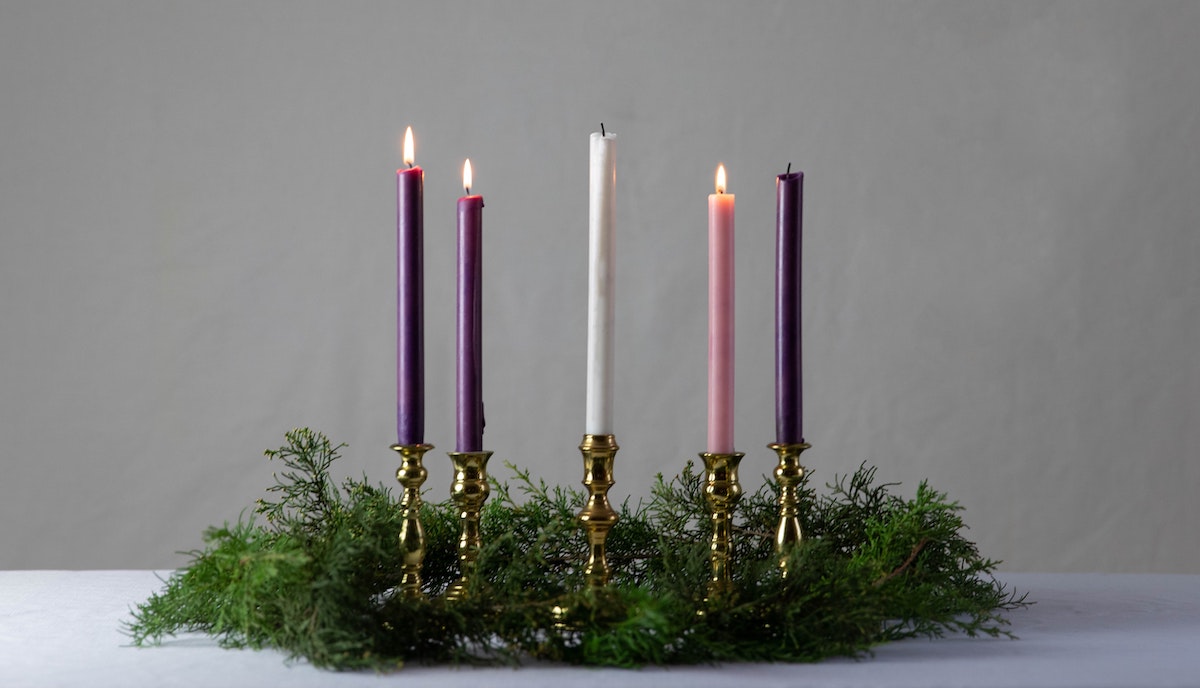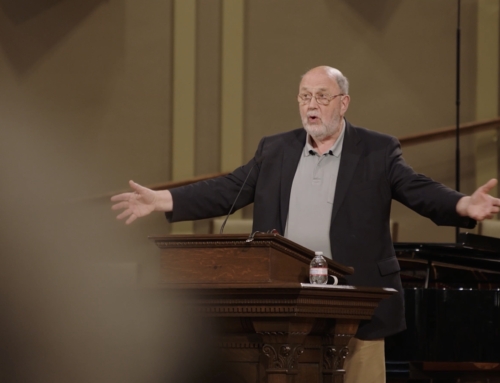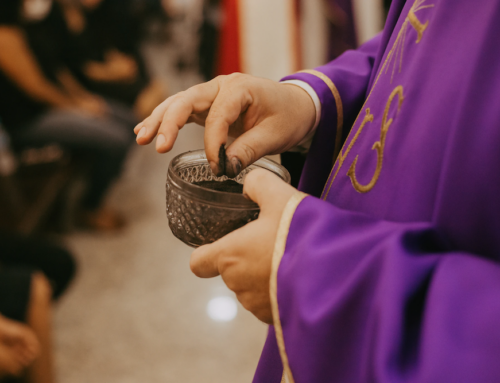Advent is the season in the church calendar when Christians prepare to celebrate the birth of our Lord and Saviour, Jesus Christ. Part of this preparation involves reflecting on a different theme each of the four weeks leading up to Christmas. Commonly, these themes are Hope, Love, Joy, and Peace. This Advent season, our team is offering some reflections on these themes as we’re thinking about them in our own lives. We hope this Advent offers you the time and space to reflect on Christ’s love for you.
Hope
David P. Seemuth, PhD
The first week of Advent points to hope, but also to pain. As a favorite Advent hymn of mine puts it,
O come, O come, Emmanuel,
and ransom captive Israel,
that mourns in lonely exile here
until the Son of God appear.
We close out this year continuing to witness the complications of Covid in some countries; inflation is rampant worldwide; and wars continue in many nations, most notably in Ukraine. How can we not feel we are in a sort of exile?
Isaiah 2:4 gives the people of God good reason to hope for God’s decisive work.
The Lord shall judge between the nations,
and shall arbitrate for many peoples;
they shall beat their swords into ploughshares,
and their spears into pruning-hooks;
nation shall not lift up sword against nation,
neither shall they learn war any more.
Our hope is felt most earnestly in pain and longing when we know that things aren’t the way they are supposed to be. We look for God’s action to right wrongs and bring healing for the weary. May that come soon.
Love
Rebecca Bowling
It’s better to give than to receive, as the saying goes. This holiday season, I must admit that I find both giving and receiving quite difficult. Some people – my children, for example – seem to have no problem receiving. I, however, prefer being self-sufficient. That feels safer somehow. It doesn’t matter what the gift is: someone’s time, money, or material possessions. I fear feeling burdensome or indebted to the gift-giver. On the other side of the equation, I want to have a generous heart in giving, but worry that my gifts will be insufficient. Giving and receiving both require vulnerability. They are foundational expressions of love, and love requires vulnerability.
This need to express love as giving and receiving is essential at all times of the year, but the holidays can be a great reminder to recommit to practices that have fallen by the wayside. As I reflect on God’s generous love and faithfulness to me this past year, I am compelled to not only pass that generous love along to others, but to allow them to pass it back on to me. To be faithful to this call to love, I must surrender my fears and insecurities to God. In receiving God’s gift of love to me, I acknowledge that God often chooses to express that love through His people. It may come in the form of a kind word, an investment of time, an act of service, or a material gift. This year I have determined to give gifts generously and to receive them graciously, because I know both the acts of giving and receiving reflect God’s generous love to the world.
Joy
Jennifer Loop
I have to be honest: sometimes when someone mentions ‘joy’, I have to resist a gravitational pull to look up and roll my eyes. For me, the opposite of joy isn’t sadness, it’s cynicism—a sneaky bandit that robs my hopeful focus and settled state of gladness. I often find joyfulness elusive when I reach for it. Rather, as a fruit of the Spirit, joy is something God cultivates in us.
Crucially, as a fruit of the Spirit, joy is meant to bear fruit that nourishes others. Joy isn’t something that remains in the heart, but is part of a movement towards appropriate action. In other words, there is a connection between joy and justice.
In Psalms 136 and 137, we witness the psalmist descend from shouts of praise to melancholy longing for retributive justice. Dark storm clouds move in to overshadow the songs of celebration.
O daughter Babylon, you devastator!
Happy shall they be who pay you back
what you have done to us!
Happy shall they be who take your little ones
and dash them against the rock!
We might admit that this pendulum swing from enthusiasm to sheer misery often reflects our own experience. The psalms encourage us to bring all of our emotions to God, including the weeping and joy that often go hand in hand (Ps 30:5).
We may scratch our heads at the concluding verses of Psalm 137. Yet, even as we rightly bristle at the idea of retaliation, the honest prayers of those who wept by the rivers of Babylon resist the cynicism that relies on self-sufficiency or the doubts that God will ever arrive to bring justice.
From the jagged rocks of despair, we can rise together again and again to sing a new song, one which echoes a mother’s joyful lullaby:
‘My soul glorifies the Lord
and my spirit rejoices in God my Savior’ (Luke 2:47)
May this Advent season be a time of reflection and reassurance that brings you a settled state of joy as we celebrate the coming of Jesus, Immanuel, God with us. May this joyfulness lead to fruitful action that blossoms into lovingkindness for God and neighbour, wherever you are.
Peace
Ryan Liguori
Things seem bad. Like, really bad. They have for a while now. (I don’t have to tell you about it. Pick your crisis.)
My friends and I discuss what to do about it, how to solve, if not the world’s problems, at least our own anxieties about them. We debate if having children is a viable option for us. We ask our doctors to increase our anxiety medications. We buy lots of melatonin. We stare off into the distance.
If ever there was a feeling which could be described as the opposite of peace, it would be this.
The author and agriculturalist, Wendell Berry, wrote a poem a few years ago called The Peace of Wild Things. The poem has become my prayer, my praxis.
When despair for the world grows in me
and I wake in the night at the least sound
in fear of what my life and my children’s lives may be,
I go and lie down where the wood drake
rests in his beauty on the water, and the great heron feeds.
I come into the peace of wild things
who do not tax their lives with forethought
of grief. I come into the presence of still water.
And I feel above me the day-blind stars
waiting with their light. For a time
I rest in the grace of the world, and am free.
What do I do when that opposite-of-peace feeling settles in? When the world is on fire and I feel hopeless and helpless? Here’s what I do: I walk my dog. I sit in cornfields. I watch the blue heron catch fish at the pond up the road. I go outside and stare off into the distance.
I’ve come to realize that I can’t work for peace in the world unless the ground of my being has inner peace. This is not a looking away from, a turning my back on, the violence of the world we inhabit. It is sitting with that world more intentionally, recognizing what is lost in that violence, gaining the wisdom necessary to save it and ourselves, and gaining the unique spiritual energy necessary for that long journey of partnering with God’s redemption project. I am reminded that God is in charge of the Earth and will put all things right in the end. I am reassured of this reality and convicted of my own part in it.
May the peace of God’s wild, wild Creation make itself known to you this Christmas season.
David P. Seemuth, PhD
Latest posts by David P. Seemuth, PhD (see all)
- Advent Reflections from the N.T. Wright Online Team - December 5, 2022
- YouTube as Public Reading of Scripture - August 29, 2022
- What I Learned From A Week With Professor Wright - June 16, 2022







